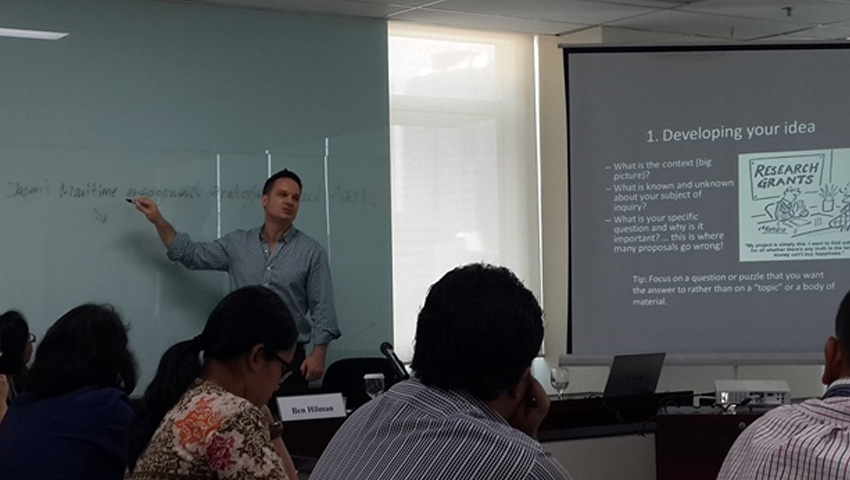Most researchers feel that almost all subjects have been explored and yet, requests for research proposals continue to knock on their doors. Should they keep searching for new topics? What is the guarantee that their research proposal will make it? What is the difference between ‘approach’ and ‘methodology’?
These comments were shared by representatives from five research institute partners in Jakarta during a half-day research proposal writing seminar on 17 September 2014, led by Knowledge Sector Initiative (KSI) Senior Advisor Dr. Ben Hillman.
The seminar began with a discussion of the importance of clear and focused research questions. Research questions that are vague or unclear usually “kill off” a research proposal at the outset. “Researchers often want to ask big or broad questions, but such questions are often impossible to address in one project. Successful research proposals are often those that identify a narrower question that can be more easily answered within time and budget constraints. ” advised Dr. Hillman. “It’s important to understand that narrow questions can contribute to understanding of broader issues – the research needs to show how the proposed research contributes to a wider body of knowledge.”Research proposals also need to offer something “new”. Originality, however, comes in many shapes and forms. “The expectation is that research contributes new information or new perspectives on a familiar subject. New approaches and methodologies also contribute to originality.”
Finding funding for research is a challenge for Indonesian researchers. Dr. Hillman offered a few tips to the group. Researchers should send their proposals to potential funders and make appointments with funders to discuss their research ideas. When applying for grants, researchers should read the funding guidelines carefully and address the criteria directly. If proposals are rejected, researchers should ask for feedback so they can improve their chances next time.
“This research proposal writing seminar is useful; the topic is specific to our needs and presented in effective classroom format. Our full team participated in this session,” said Iqbal Damanik, researcher from KPPOD or Regional Autonomy Implementation Monitoring Committee, one of KSI research institute partners.
The research proposal writing seminar will be repeated for other KSI partners in South Jakarta and in Yogyakarta. KSI will provide technical advice on research proposals whenever partners are developing a new proposal.






